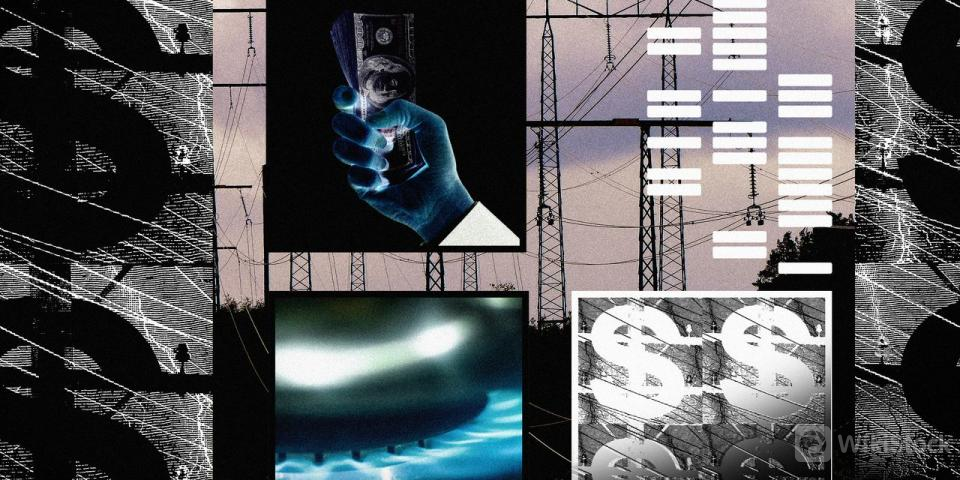The Next Big Power Play on Wall Street
There is a new force on Wall Street: power traders.
Hedge funds are piling into power, drawn by volatile electricity and natural-gas prices that could remain turbulent. They are offering incentives like big sign-on bonuses, large profit-share deals and company cars with drivers to lure traders from utilities, banks and rival investment shops.
Most Read from The Wall Street Journal
- Why Americas Berries Have Never Tasted So Good
- A New Age of Materials Is Dawning, for Everything From Smartphones to Missiles
- Big Banks Are Taking Hits From Commercial Real Estate
“There is a spotlight that is now shining on us today, more than any time before,” said Juan Penelas, co-founder of e360 Power, a Texas-based hedge-fund firm with a focus on electricity trading. Assets under management have roughly doubled since the start of 2022, to about $470 million.
Electricity is the busiest desk at HC Group, a London-based headhunting firm that focuses on commodities. Over the past year, the firm has helped financial firms with more hires in power than in oil, an executive at the company said.
Behind the boom are two trends: the rise of energy-intensive artificial intelligence and of electrification due to the energy transition. The International Energy Agency projects that AIs energy usage will rise 10-fold over the next two years.
Global trading volumes for electricity futures jumped by 35% between 2019 and 2023, data from a McKinsey study showed. Some regions have seen much bigger increases, with Nordic volumes surging 14-fold and those in the U.K. tripling.

Alexandra Citrin-Safadi/WSJ; Photo: iStock
Some huge hedge funds have taken note, according to people familiar with the matter, including some of the worlds largest so-called multimanager firms, which use specialized teams to spread bets across a range of markets.
Citadel, which manages $63 billion, was an early mover and recently increased the size of its team. Millennium Management and Balyasny Asset Management have also built up their desks, snapping up traders and analysts from a range of players in the market, including utilities.
Bobby Jain, formerly co-chief investment officer at Millennium, launched a hedge-fund firm this month after securing $5.3 billion in commitments. Jain Global has hired more than 10 portfolio managers for commodities, which will be a key asset class. Within commodities, power and gas will be the biggest initial focus, people familiar with the matter say.
Power is one of the most volatile commodities. To get a sense of just how much it fluctuates, consider Brent (BZ=F), the global benchmark for crude oil. It has traded between roughly $73 and $95 a barrel over the past 12 months. If it traded like power, though, the price could have swung between negative levels and $850 a barrel, according to McKinsey.
Story continues
The volatility and complexity of power markets present trading opportunities and risks. Over the years, companies as varied as JPMorgan (JPM) and Électricité de France, or EDF, have run into difficulty trading power, while Enron blew up in part because of it. Wrong-way bets can quickly rack up huge losses, and regulators are eager to avert spikes in energy bills for households and businesses.
Over the years, the balance of power in the market has shifted, reducing the role of investment banks.
More than a decade ago, numerous big banks such as Barclays (BCS) and Deutsche Bank (DB) ran trading desks that bought and sold energy. But tighter regulatory scrutiny and higher capital requirements led many to reduce their market presence.
“Many banks cant afford to be in this business anymore. The hurdles are lower for hedge funds,” said Anthony Gordon, a former head of energy at Och-Ziff Capital Management. He is now a partner at Avaio Capital, a private-equity firm that invests in energy infrastructure.

The volatility and complexity of power markets present trading opportunities and risks. - Jordan Vonderhaar/Bloomberg News
Compared with the more highly regulated banking and utilities industries, hedge funds offer traders the appeal of looser guardrails, in some cases, and bigger paydays. Top power traders typically take home between 12% and 30% of the profit they make for their funds, headhunters and traders say, roughly in line with the kinds of profit shares that some large hedge-fund firms pay more broadly to portfolio managers.
The firms are also drawing on talent from industry players.
Alex Watson, a natural-gas trader at French utility EDF, made huge returns when gas prices skyrocketed due to disruptions to Russian supply. His bet on differences between European and U.K. prices netted the utility millions, according to people familiar with the trade. Watson was hired by BlueCrest Capital Management, a private investment firm founded by billionaire Mike Platt, last year.
Portfolio managers can make tens or even hundreds of millions of dollars in profit in a good year, according to the executive at HC Group.
Freepoint Commodities, a Connecticut-based hedge-fund manager with a focus on energy, is offering some new portfolio managers 50% of the profit they generate in their first year, according to a person familiar with these terms. Its power team is bigger than for any other commodity, this person added.
Top traders are also being offered million-dollar signing bonuses and sweeteners like company cars with drivers to join these funds, headhunters and traders say. Once they arrive, they are presented with a challenge: Make the same kind of money as they did before. This might not be possible, according to rival traders and commodities executives.
While Russias invasion of Ukraine created exceptional dislocations, many in the market believe a cocktail of surging energy demand, decades-old grid infrastructure and the continued build-out of clean energy could mean more freak events, or at least more extreme volatility.
More than 1,200 coal-fired units have shut down in the U.S. and Europe since 2000, according to Global Energy Monitor. This has made electricity systems more vulnerable to extreme weather, as coal is a stable source of energy, albeit highly polluting. The Group of Seven countries have pledged to close all their coal plants by 2035.
One popular strategy is to buy power cheaply early in the morning when demand is low and sell it during periods of peak demand, like in the later afternoon. Changes in weather can cause dramatic price swings in areas with a lot of renewables. An unexpected storm in the middle of the day can reduce the energy generated by solar farms, driving up prices.
Byte refutes rumors of speculation on A-share Doubao concept stocks
How to develop a low-altitude economy
Doubao concept surges, IPO economy booms
5G enters the "second half", which stocks are the best to buy
Check whenever you want
WikiStock APP
